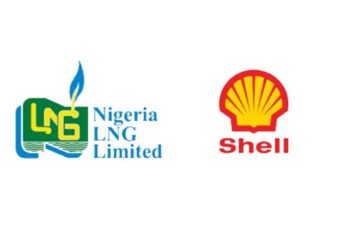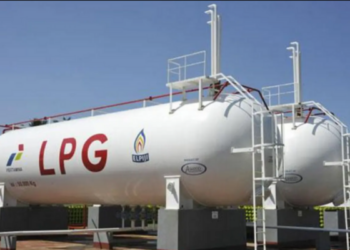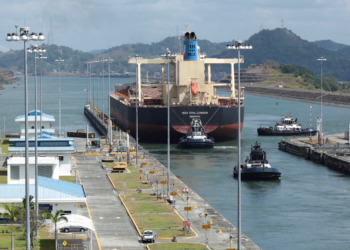The current challenge in Nigeria’s natural gas sub-sector lies in feed gas supply, largely due to crude oil theft impacting both associated gas and oil production.
This issue has been emphasized by stakeholders, including Nigeria Liquefied Natural Gas (NLNG) Limited, stressing the need for urgent solutions to achieve Nigeria’s vision of transitioning into a gas-powered economy across industries, power generation, clean cooking, and transportation.
In a recent conversation, Nairametrics interviewed Jill Hansen, the co-founder of Bayelsa LNG, where she discussed the company’s strategy to target gas flare sites as potential feed gas sources for their upcoming projects.
NAIRAMETRICS: What has been happening at Bayelsa LNG as far as 2023 is concerned?
Jill Hansen: So far in 2023, Bayelsa LNG has been involved in broad stakeholders’ engagements with respect to signing multiple Gas Sales/Feedstock agreements, engineering, procurement and construction (EPC) contracts as well as the necessary government permits and approvals.
It is expected that the initial phase of the site preparation will begin once the commercial and technical feasibility reports for the project are ready before the end of next year.
NAIRAMETRICS: What are your plans at Bayelsa LNG in terms of project development and employment creation, for the rest of Q4/2023 and H1/2024
Jill Hansen: The last quarter of 2023 will continue to involve broad consultations with the major stakeholders in the LNG industry.
As already highlighted, we are at a critical phase of the project where a lot of resources are going into commercial and technical feasibility studies, reports and audits.
We are making sure that proper evaluations of the key components of the project are being done. Special attention is given to the social impacts and external effects of the project.
The initial phase of the site preparation activities will begin in 2024 and we are optimistic that hundreds of technical and non-technical job opportunities will be created between now and the Pre-FID phase of the project.
NAIRAMETRICS: The Tinubu administration has said that it will focus on gas variants as alternatives to the now expensive petrol used for powering automobiles and generators in small and large-scale businesses. How does Bayelsa LNG plan to tap into this strategy by the Federal Government?
Jill Hansen: We at Bayelsa LNG have long believed that a good proportion of the country’s huge natural gas resources should be utilized locally to drive mobility and industrialization and we are perfectly positioned to work with the federal government of Nigeria in realizing its objectives for domestic gas commercialization and utilization.
Our LNG export project is designed and engineered to also produce a good volume of natural gas liquids in addition to the LNG for export.
The resulting natural gas liquids will be sold domestically in the forms of LPG and Propane to address the demand-supply gap in the domestic LPG market and make cooking gas more affordable to Nigerian households and commercial users.
We are also open to selling some volumes of our LNG output in the domestic market for power generation and for the automotive industry.
NAIRAMETRICS: Now that Nigeria has a Minister of State for Gas, the LNG market in Nigeria is expected to add more value and grow beyond what has obtained in the past. What do you see as the bottlenecks that could prevent this anticipated growth in the sector and how can the challenges be tackled?
Jill Hansen: The growth in the domestic LNG market has been stunted by the delay in the passage of the Petroleum Industry Act.
Now that the PIA has become a guiding legislation for activities in the Nigerian oil and gas industry, it is important for the government to pay attention to other issues such as gas gathering and pipeline infrastructural deficit, low level of investment in complementary upstream projects, oil theft and pipeline vandalism as well as insecurity. If these challenges can be addressed, we should expect to see more local and foreign investments in the Nigerian LNG space.
NAIRAMETRICS: On a global scale, how would you describe the LNG market right now in terms of demand for long-term contracts and the spot market as well? How can Nigeria build on these developments and increase LNG capacity in the coming years?
Jill Hansen: The natural gas supply disruptions in Europe as a result of the Russian invasion of Ukraine has reshaped the pattern of LNG demand and supply in the world.
The Asian market is traditionally the hotbed for long-term LNG contracts but record-high spot prices in the major LNG demand markets in 2022 have forced most European nations back to the negotiating table for long-term LNG deals.
This is especially good for prospective LNG export projects like Bayelsa LNG as Europe is geographically at a good shipping distance to Nigerian-based LNG projects.
Also, Europe is banking on Nigerian-based LNG projects as a major replacement for the Russian piped gas and this development is a major underpinning for the Bayelsa LNG project.
It is therefore important for the government to create an expedited and investment-friendly regulatory framework for upcoming LNG export projects in order to take full advantage of this new development in the global LNG market.
NAIRAMETRICS: What are the plans Bayelsa LNG has to tackle gas flaring and turn it around for the benefit of the sub-sector?
Jill Hansen: As an onshore liquefaction facility, Bayelsa LNG is driven by the desire to enhance the environmental integrity of Bayelsa State and the Niger Delta region at large.
As part of our ESG and decarbonization goals in 2024, we will be targeting flare sites in the state and the region as important sources of feed gas for our LNG facility.
It is our conviction that our intervention will go a long way in helping to realize the objectives of the Nigerian Flare Gas Commercialization Programme.
NAIRAMETRICS: Give us a brief summary of what Bayelsa LNG is doing in local communities in Bayelsa state to tackle environmental issues as a result of crude oil theft.
Jill Hansen: Bayelsa LNG is a project that is borne out of the motive and desire to see sustainable socio-economic development in Bayelsa State and the Niger Delta region at large.
The key stakeholders of the project are true indigenes of Bayelsa who have long-term and continuous engagements with the local communities. Bayelsa LNG is a project by the people, for the people.
It is our strong hope that the jobs and economic opportunities that are created at Bayelsa LNG will organically begin to reduce illegal theft activity. Bayelsa LNG feels strongly about developing the local workforce and talent.
When presented with more lucrative employment options, career training and well-paying professional careers in the LNG industry, those participating in oil theft as a means of survival will naturally begin to turn away from illegal business.
Capacity building will help to empower the youths, women and vulnerable members of those communities to take responsibility and lend their voice to the call against crude oil theft and environmental degradation.
Bayelsa LNG also has a commitment to maintaining and preserving the mangroves and delta wetlands that are so vital to the environment.
This commitment will be manifested by reforestation and conservation programs.
NAIRAMETRICS: Does Bayelsa LNG have any ongoing agreements with the NLNG, if not, are there any plans to do so? Can you share details?
Jill Hansen: As earlier mentioned, Bayelsa LNG is broadly engaging the major stakeholders in the industry. We highly regard what NLNG has achieved globally, and we will definitely be happy to explore areas of common interest.
However, we are currently focusing on government approvals, multiple feedstock agreements and EPC contracts and our progress report at every phase of the project will always be made available to the public.
NAIRAMETRICS: How do you see the current economic downturn (inflation rate: 26.72%) and insecurity in Nigeria affecting LNG investments in the country going forward?
Jill Hansen: The recent inflation figures are remarkable especially if we consider the effects on the domestic capital market. It is also important that the nation is safe enough for investments in the thriving LNG sub-sector.
However, NLNG has been able to sustain operations and remain competitive since its inception despite the historically high level of insecurity, especially in the past years.
For Bayelsa LNG, we believe that our strong social interactions, community service and acceptance among the local communities of Bayelsa State will make us worry less about the issues of insecurity and focus more on how the project can bring jobs, schools, healthcare facilities and other social support infrastructures to the people of the state and the region.
NAIRAMETRICS: How about the current rise in global crude oil prices? Does this have any impact on Nigeria’s LNG business?
Jill Hansen: The LNG export industry is global. Major movements in international crude oil prices are bound to create a ripple effect in the global energy market, including the LNG market.
Most of the long-term LNG contracts in the major demand markets of the world are indexed to crude oil prices such as the Brent Crude and Japanese Crude Oil Cocktail (JCC) and a rise in crude oil prices is expected to impact new long-term LNG deals even for the Nigerian-based LNG projects.
























